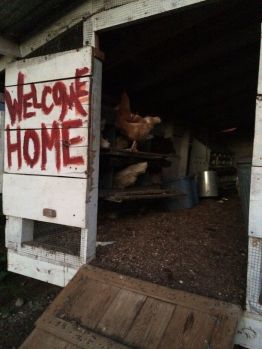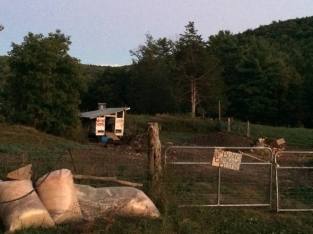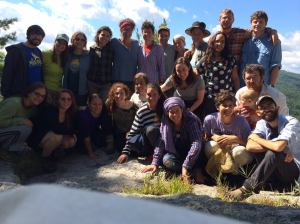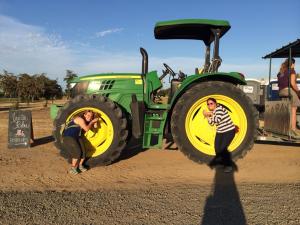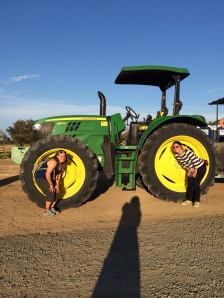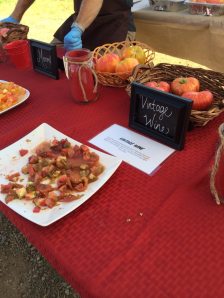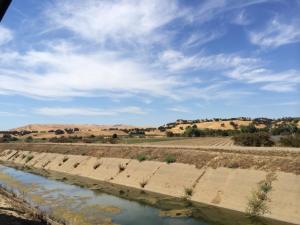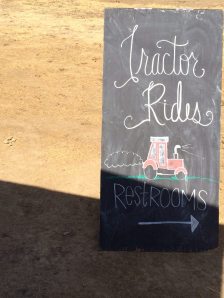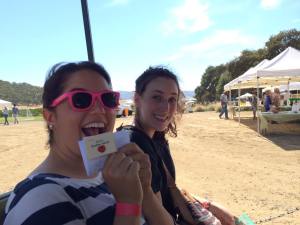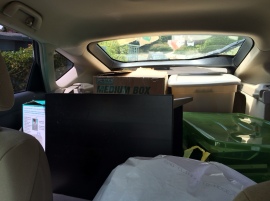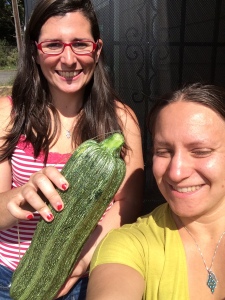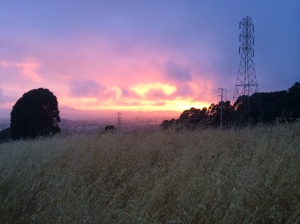I wrote some reflections for Adamah about a day we spent at an event called “Bread and Torah”…here are some of the highlights!
————–
This October, we had the privilege of spending a day with two rabbis, Linda Motzkin and Jonathan Rubenstein, who traveled from Saratoga Springs, NY to share with us their gifts as a baker and torah scribe, respectively. At first, I was simply overcome with joy at the variety of embodied experiences to explore throughout the day. The sweet scent of cinnamon-glazed rugulach, the beauty and delicate care contained in a single hand-written letter “alef” on a torah scroll, the palpable hum in the air of people proofreading sections of torah, declaring every single letter out loud – “VAV. YUD. ALEF. MEM. RESH.” I took a look around the room, full of folks scattered around either bobbing their heads, deep in a trance of scanning torah panels or joyfully twisting the four strands of the new challah braiding pattern they discovered, and thought, “Wow. This is a Judaism that is alive and breathing.”
The full impact of the event didn’t hit me until the next morning though, as we we finished stretching and preparing a deer hide that will one day be used as part of a sefer torah scroll. Together we pulled and stretched the hide, then smoothed and cut it, releasing bits of dust and deer hide into the air with the whir of a sanding tool. Somewhere, mid slice of the hide as I twisted the knife and released the hide from the chords that helped stretch it, I suddenly sensed how palpable the connection was for me in this moment between the land and what is to me one the holiest elements of our Jewish tradition, the torah itself. As I held the knife, it was as if I was paused in a moment in time, one point on a thread of connection linking me to creatures of the earth, the resources that sustain them, our delicate, impermanent time on this planet, and the holy work we humbly seek to do in this world.
Rabbi Linda reminded us or the Talmudic wisdom, “Im ein kemach, ein Torah v’im ein Torah ein kemach” – if there is no flour, there is no Torah and if there is no Torah, there is no flour. Never before had I so clearly known this to be true. If we ignore our connection to the land and to our resources, we are not carrying out our holiness in the world to the fullest extent possible. As an aspiring Jewish spiritual leader, I was so humbled by the work we put into this sefer torah scroll. How much more meaningful and powerful could this torah scroll be within a community that has physically shaped and transformed each and every part of it? How rich and powerful can it be for rabbis to also be doing the work of physically trudging through the muck and dirt and dust required to bring us sacred elements of our tradition that we may take for granted?
What a blessing it is to live in a Jewish community here at Adamah that is so ripe for such depth of connection. I will be leaving Adamah with this sense of connection rippling through me, hoping I can carry even a small piece of it into the rest of the world. May we continue to find and build communities that nourish and sustain us, and remind us so clearly of our role in the interconnected webs we weave.

